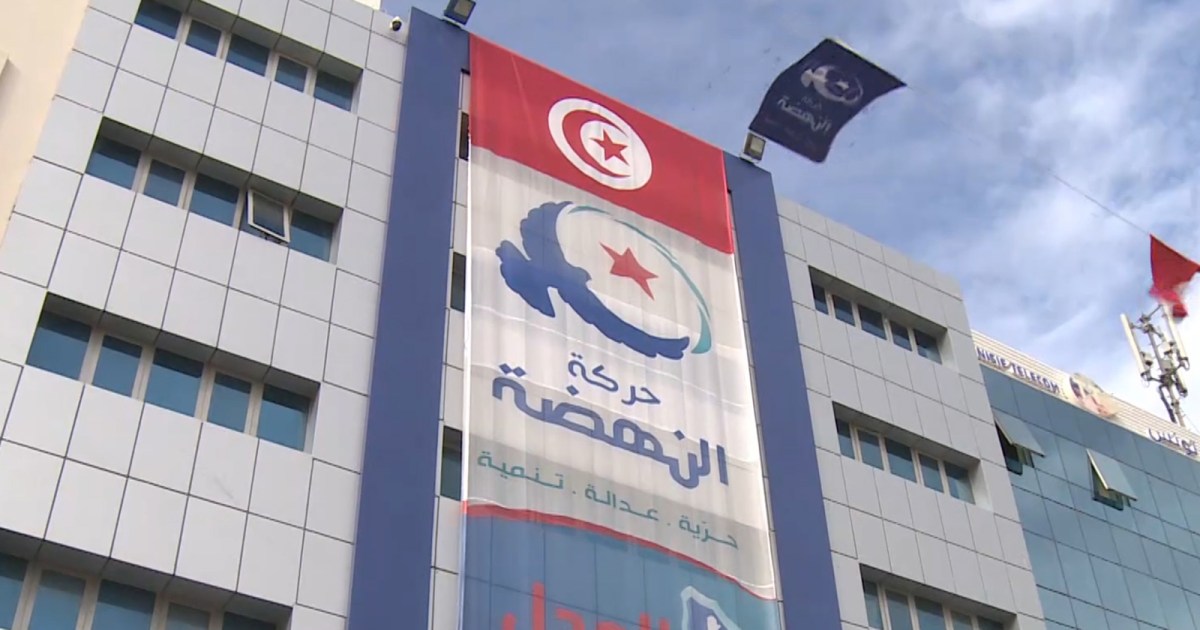The Tunisian Ennahda movement announced the formation of a committee to manage the crisis and search for solutions and understandings to avoid the worst of the country and restore the institutional situation to its normal state, while Tunisian President Kais Saied reiterated that the exceptional measures that were taken came within the framework of the law and the constitution.
The movement said - in a statement - that the committee headed by a member of the executive office of the movement, Muhammad al-Qumani, is temporary and has an exclusive mandate in the file.
She added that she had received "the message of the angry Tunisian people" and would "couragely declare her self-criticism".
The movement recalled the positions it had previously taken in which it waived power for the sake of the national interest, and therefore it is now ready for positive interaction in order to complete the democratic process in the country, according to it.
The Ennahda movement stressed that it will not delay in supporting any trends that respect the constitution and the public interest and will work to make them succeed, stressing that it will be flexible in the search for the best formulas for managing Parliament, controlling its priorities and improving its performance.
She also stressed the need to make joint efforts to finally get out of the crisis, so that Tunisia could face its immediate and future problems within the framework of national unity and the constitution.
Professor Rashid Ghannouchi: Ennahda is ready to sacrifice in order to complete the democratic path and is open to a “radical review” of its policies 🇹🇳 pic.twitter.com/TyUfFUKi0a
— Rached Ghannouchi (@R_Ghannouchi) August 11, 2021
The movement indicated that the presidential decisions of July 25 came to break this closed loop in search of solutions, but some of those decisions "go far in grave breach of the constitution."
Since last July 25, Tunisia has been witnessing a sharp political division, following the decision of the country's president, Kais Saied, to dismiss Prime Minister Hisham Al-Mashishi, freeze the powers of Parliament for a period of 30 days, lift the immunity of deputies, and later issue orders to dismiss officials and appoint others.
Tunisian parties rejected Said's exceptional decisions, and some considered them a "coup against the constitution", while others supported them, seeing them as a "correction of the path", in light of political, economic and health crises.
Said renewed - during his meeting with Minister of Education Fathi al-Salawi yesterday - his assurances that the measures that were taken come within the framework of the law and the constitution and not a coup, and that "the responsibility required that these measures be taken ... necessitated by the danger that has become a daily reality."
On the other hand, the head of the Ennahda Movement and Speaker of Parliament, Rached Ghannouchi, said - in an interview with Anadolu Agency - that he is still waiting for the President of the Republic to announce a roadmap to get out of the crisis, denouncing the arrests of deputies, a travel ban on everyone, and a comprehensive restriction in the field of freedoms. These are practices that remind Tunisians of an earlier time, as he described them.

